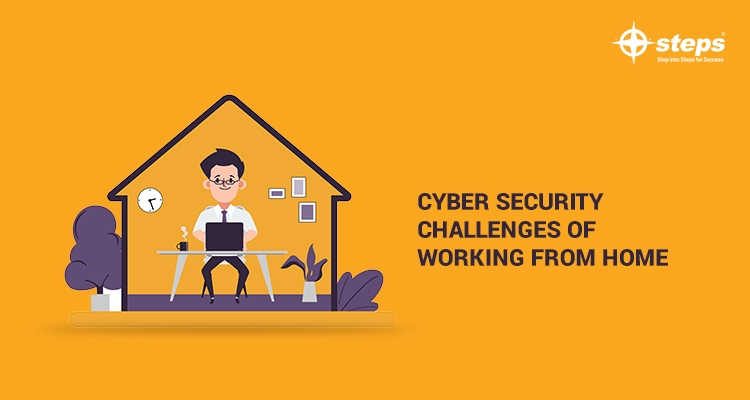CYBER SECURITY CHALLENGES OF WORKING FROM HOME

COVID-19 pandemic has made a change in the pattern of cyber crime activity. Not only that the epidemic is likely to reduce the threat of physical crime. Cybercriminals change their ways and now point people to their homes, which is often their office as well.
As working from home becomes a gateway to new forms of data theft, companies face an increased risk of cyber threats. However, cybercriminals who try to obtain corporate information, customer information, and intellectual property are not the only ones threatening businesses – employees can also be a weak link in IT security systems.
Unsafe home setting
In many cases, home settings that include network connections and devices used to access company private data may not provide adequate security. For example, it may not have the same protocols as the use of VPNs, antivirus solutions, firewalls, and blocking programs used to protect the organization.

It is rare for a business to enforce such security measures to protect sensitive data and to provide basic security in residential areas where employees are likely to work remotely. In fact, there are many potentials for increased breaches or compromises of verification required to access company programs at home.
Use of personal devices
Employees often use more than one machine when working from home to obtain important information or other work-related reasons. This makes use of data protection efforts as all used devices may be subject to potential system threats. For example, an employee’s laptop may have adequate security controls, but using an unprotected smartphone could allow cybercriminals to jeopardize the organization’s security.
Users should refer to pre-determined security policies that govern the use of their devices to manage work-related activities. If policies are not in place, an organization should create an awareness of employees to help them ensure that every device has some form of security, including basic security measures such as password processes.
File sharing online
While companies may consider encrypting data stored on their network, they may not be able to encrypt the encryption details when moving from one location to another. Employees share sensitive information on a daily basis regarding client or customers account details.
Delays or denials of IT support
As an on-site staff, remote workers often need the support of an IT department, especially because of various security issues. Distance and planning challenges can prevent the IT department from providing appropriate assistance.
For example, if an internet connection is broken during which a cyber attack aimed at data theft, IT support may not be able to prevent remote attacks, and this challenge could lead to events with more serious consequences. As part of the report, 47% of organizations will give workers the option to work full-time away from the strike, and 82% said workers could work from home at least one day a week.
Which revealing the fact that working from home will become a habit even after the epidemic has ended. Providing safe and secure services for workers will therefore be a major challenge and they need to come together.
So start learning the Ethical Hacking Course in Cochin from STEPS. Here we teach you everything you need to know to get started a carrier in the field of ethical hacking and penetration testing.
You will learn the practical skills needed to work in the field. Throughout the course, we will build our Active Directory lab in Windows, make it vulnerable, crack it, and mark it. We will cover the red and blue sides. We will also include some of the features such as report writing. We offer online Ethical Hacking training as well as offline .

